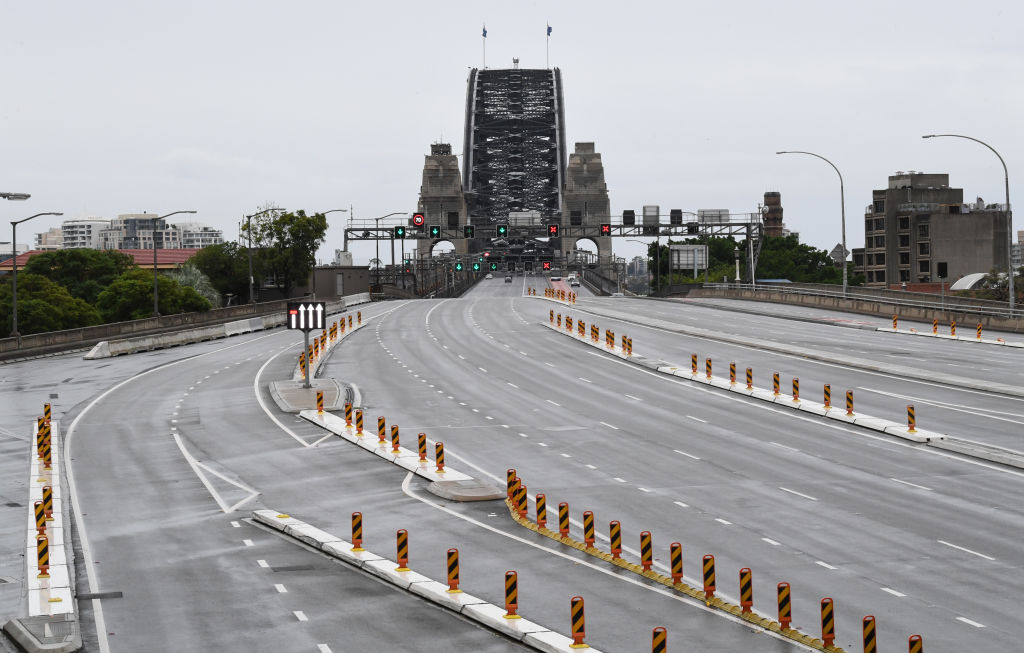After Covid-19: Australia and the world rebuild

In the years leading up to the global Covid-19 crisis, Australia, like many countries, failed to heed health specialists’ warnings on the likelihood and consequences of a global pandemic. Critical pandemic readiness was an insurance policy deemed too expensive by most nations. That decision left our nation’s pandemic policies exposed to short-sighted efficiency budget cuts.
By 9 March 2020, Prime Minister Scott Morrison was warning us, ‘Whatever you thought 2020 was going to be about, think again.’ On 23 March, Morrison, with implied bipartisan support, told Australians young and old that because of Covid-19 we’re likely to face the ‘toughest year of our lives’.
Fortunately, Australia has been able to implement policies that have slowed and, at the time of writing, flattened the rate of infection. Deaths, social isolation, rising unemployment, global economic recession and intergenerational national debt will ensure that Covid-19 leaves an indelible mark on our individual and collective memories.
But now is no time to rest. Australia needs to be ready to deal with the crisis after the crisis.
The pandemic has shown that far too much of our national resilience, from broadband bandwidth to the capacity to produce basic medical supplies, has been left to market forces and good luck rather than planning.
Our assumptions about the shape of Australian society and the broader global order are now being challenged, and we need to take stock of likely future directions.
There is hope. There are indications that the government is beginning to focus on the need for tectonic strategic change after the immediate health crisis stabilises.
Foreign Minister Marise Payne has called for an international effort to explore the causes, and Beijing’s management, of the pandemic. Morrison has reached out to his counterparts in the US, Germany and France, seeking to empower the World Health Organization to investigate the origins of the novel coronavirus. These are important indications that the government understands that relations with the People’s Republic of China can’t revert to quiescent overdependence.
At the heart of this crisis is a story about the clash of political systems—messy democracies versus brutal authoritarianism. Covid-19 will reshape the global order. The urgent task for Australia and like-minded democracies is to make sure that a stronger form of liberal internationalism prevails.
The Australian government has also announced that it will invest in ‘government-owned oil reserves for domestic fuel security’. Although much remains to be done, this is a welcome development, and it’s clear that there’s a fresh appetite for addressing points of vulnerability across the economy where Australia has been too dependent on the just-in-time delivery of essential goods.
With the right investment, Australia could emerge from the crisis with a stronger capacity to protect its sovereign interests and a deeper resilience when it comes to riding out the challenges of an increasingly risky regional security environment.
Morrison’s national cabinet, bringing together the prime minister and state and territory premiers and first ministers as a real decision-making body, has been a genuinely profound step in making the Australian federation work more effectively. Likewise, many areas of the Australian public service have risen to the challenge of creating new policy quickly and effectively. Crises can bring out the best in many people and in many organisations.
There’s an urgent need to sustain that energy and creativity and to broaden its application into new policy areas. Australia has never had a more desperate need for its public officials to think big and to be prepared to walk away from old policy settings that may simply not be relevant after the pandemic.
Although Australia and much of the world remains locked down, we need to emerge from the crisis more connected with our neighbours and with like-minded democracies.
It’s possible that the worst effects of Covid-19 have yet to be seen in Southeast Asia, South Asia and the Pacific. Australians should turn our minds to what we can do to help our more fragile neighbours. Here, a humanitarian imperative and a strategic necessity come together. Australia needs a stable and secure region in which we can be stable and secure. We should do everything we can to build closer relations in our neighbourhood while deepening and reinvigorating ties with longstanding allies and friends. The world that emerges after Covid-19 will need strong, like-minded liberal democracies working closely together as a foundation of global stability.
This pandemic has created a once-in-a-lifetime opportunity for our nation to critically review and reset many of our policy assumptions. Perhaps 2020 will mark the beginning of a new period of nation-building for Australia that rivals our heady post-war years, but such success will come only from big thinking and bold policymaking.
Today, ASPI releases its new book, After Covid 19: Australia and the world rebuild. This publication offers a policy-focused analysis of the world we’ll face once the pandemic has passed. It analyses 26 key topics, countries and themes, ranging from Australia’s domestic situation through to the global balance of power, climate and technology issues.
In preparing each chapter, we asked our authors to consider four questions:
- What impact did Covid-19 have on their research topic?
- What will recovery mean?
- Will there be differences in future?
- What policy prescriptions would you recommend for the Australian government?
And we asked them to think big and bold.
After Covid-19 offers pithy, policy-focused analysis of the world we’ll face once the pandemic has passed.
There’s so much to do and so many challenges to address. ASPI intends this to be the first in a series of After Covid-19 volumes, bringing bright minds and new ideas to major policy problems and covering Australia and the wider world.